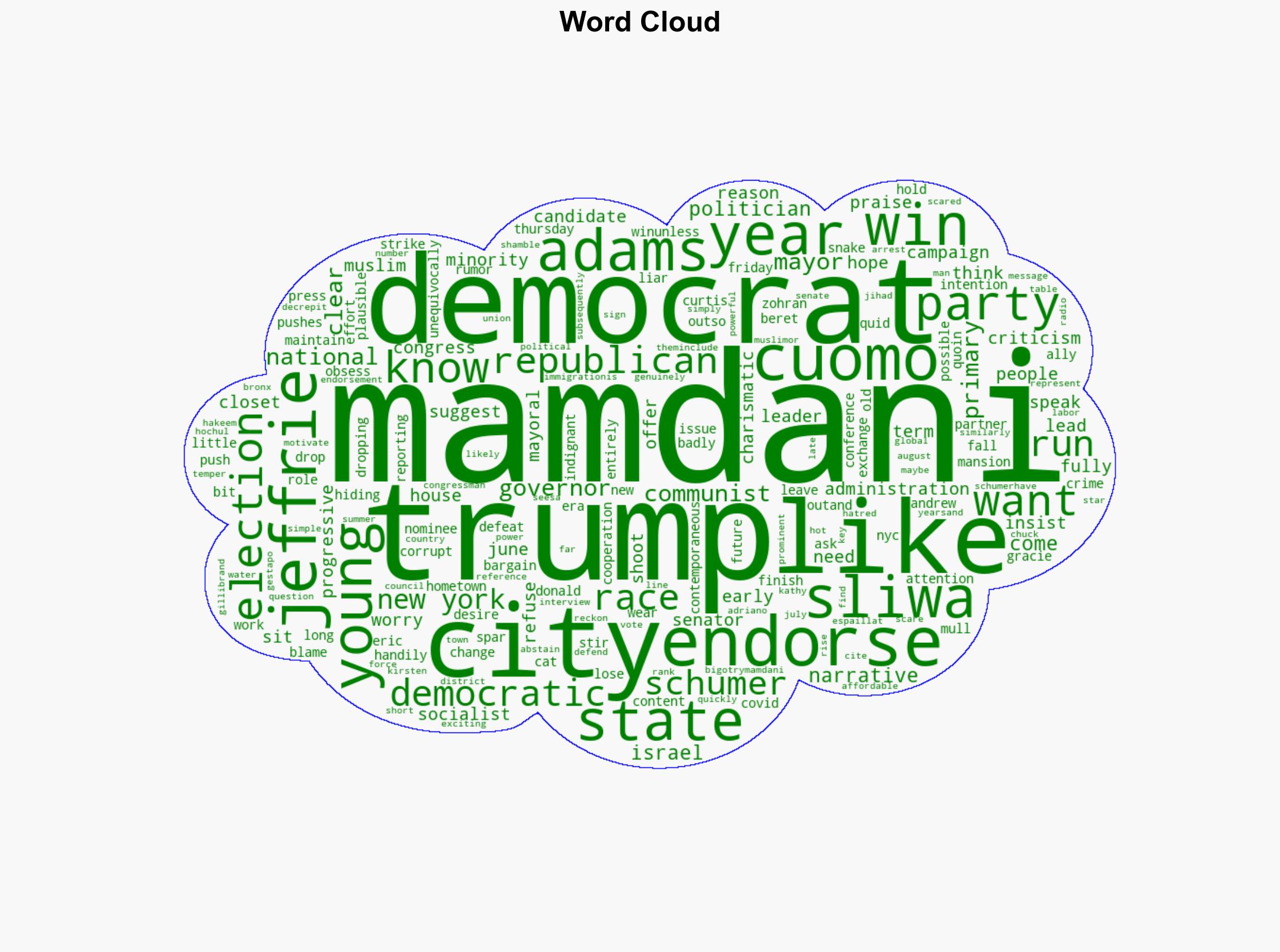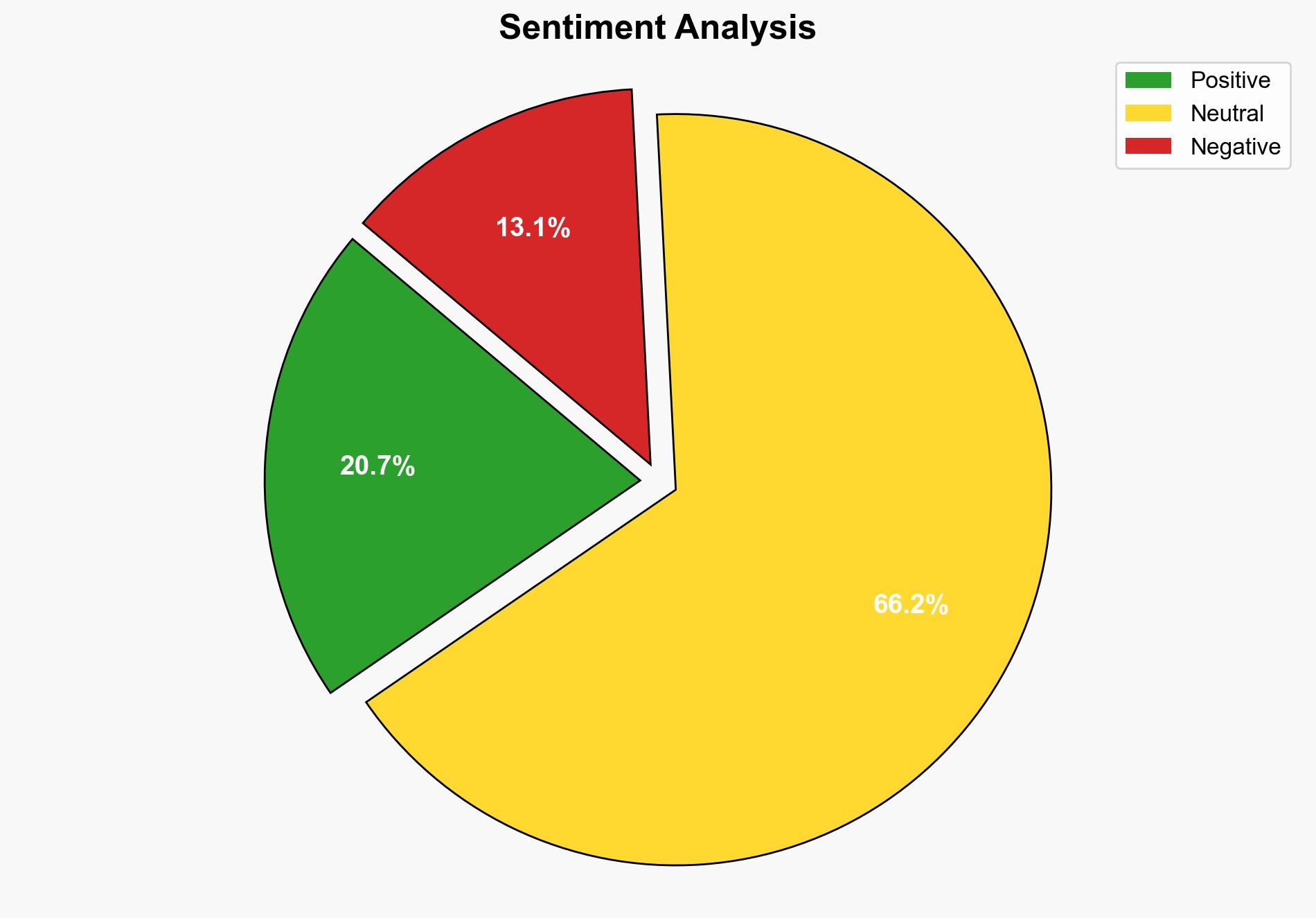The Democrats Who Refuse to Back Mamdani Are Sending a Scary Message – The New Republic
Published on: 2025-09-08
Intelligence Report: The Democrats Who Refuse to Back Mamdani Are Sending a Scary Message – The New Republic
1. BLUF (Bottom Line Up Front)
The most supported hypothesis suggests that prominent Democrats’ reluctance to endorse Zohran Mamdani stems from his critical stance on Israel, which conflicts with the party’s broader geopolitical alliances. Confidence in this hypothesis is moderate. It is recommended that Democratic leaders engage in dialogue to address internal divisions and clarify their stance on foreign policy issues to prevent alienation of progressive constituents.
2. Competing Hypotheses
1. **Hypothesis A**: Democrats’ reluctance to endorse Mamdani is primarily due to his criticism of Israel, which is seen as a liability in maintaining key political alliances and donor relationships.
2. **Hypothesis B**: The hesitation to support Mamdani is driven by concerns over his socialist policies and potential to disrupt the party’s moderate image, rather than his foreign policy views.
Using Analysis of Competing Hypotheses (ACH), Hypothesis A is better supported by evidence, particularly the cited concerns of key figures like Chuck Schumer and Hakeem Jeffries, who have abstained from endorsing Mamdani due to his stance on Israel.
3. Key Assumptions and Red Flags
– **Assumptions**: It is assumed that criticism of Israel is a significant factor in political endorsements. Another assumption is that Mamdani’s socialist policies are perceived as a threat to the party’s unity.
– **Red Flags**: The possibility of bias in reporting, as the source may have a vested interest in portraying internal Democratic conflicts. The lack of direct statements from some key figures leaves room for misinterpretation.
– **Blind Spots**: The role of external pressures, such as lobbying groups, is not fully explored, which could influence the decision-making process.
4. Implications and Strategic Risks
– **Political Risks**: Continued division within the Democratic Party could weaken its electoral prospects, particularly if progressive voters feel alienated.
– **Geopolitical Risks**: A shift in the party’s stance on Israel could have broader implications for U.S. foreign policy and its relations in the Middle East.
– **Psychological Risks**: The perception of internal discord may embolden opposition parties and undermine public confidence in Democratic leadership.
5. Recommendations and Outlook
- Engage in internal discussions to reconcile differing views on foreign policy and socialism within the party.
- Develop a clear communication strategy to address public concerns and prevent misinformation.
- Scenario Projections:
- **Best Case**: Unified party stance strengthens electoral prospects and clarifies foreign policy positions.
- **Worst Case**: Persistent divisions lead to significant electoral losses and weakened international alliances.
- **Most Likely**: Gradual reconciliation of differences with some lingering tensions, maintaining current political dynamics.
6. Key Individuals and Entities
– Zohran Mamdani
– Chuck Schumer
– Hakeem Jeffries
– Kathy Hochul
– Kirsten Gillibrand
– Andrew Cuomo
– Curtis Sliwa
– Eric Adams
7. Thematic Tags
national security threats, political strategy, foreign policy, internal party dynamics





